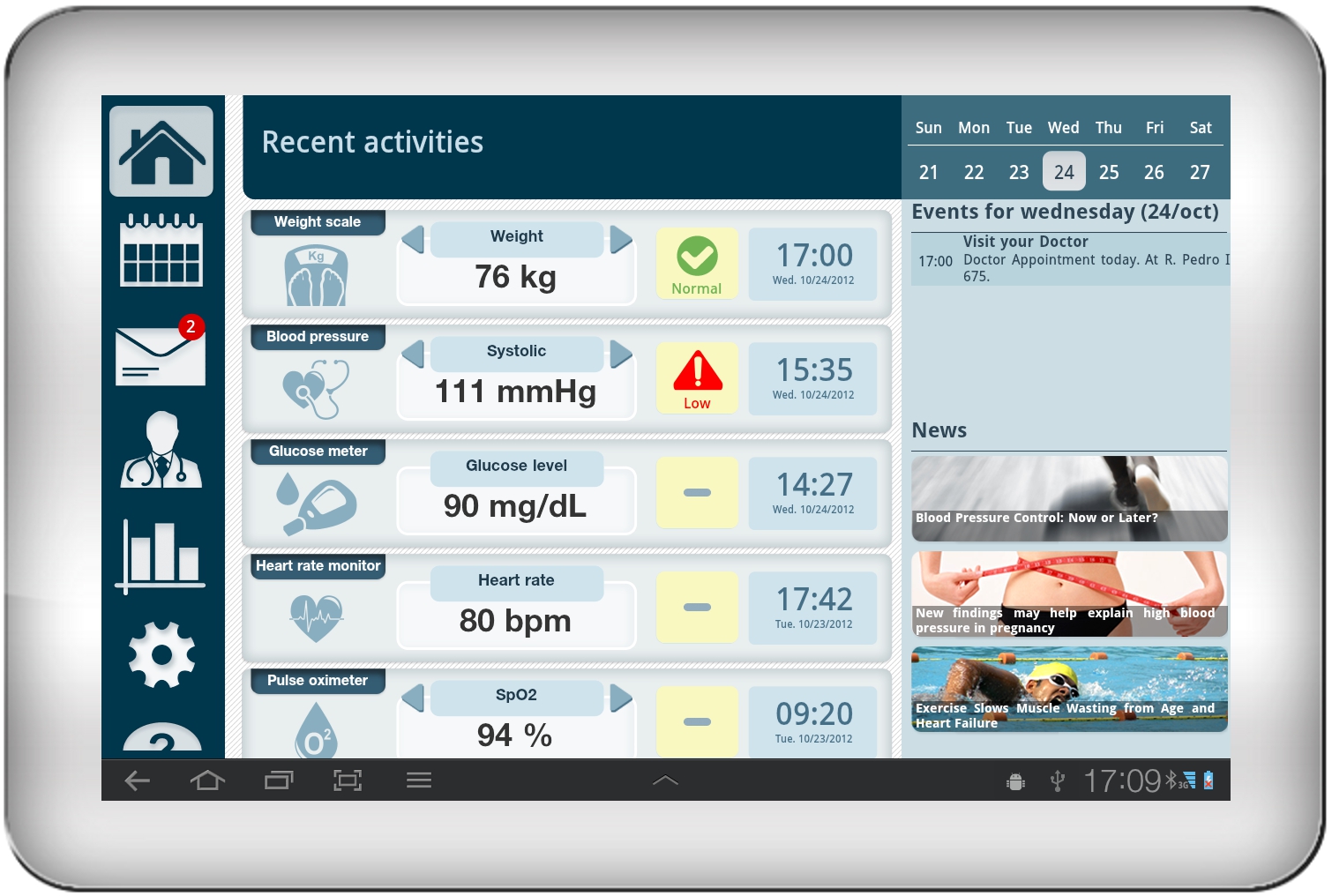
HM4A has five reusable layers: Antidote: open source IEEE 11073-20601 stack, written in C and portable across operating systems. HealthService: encapsulates Antidote and exports a Java, easy-to-use IEEE 11073 manager API. HealthManager: foundation for Manager (IEEE 11073) and WAN Sender (HL7) applications. JsHealthManager: foundation for HTML5-based applcations. Exports the HealthManager features into Javascript realm. PhcManager: the application UI, based on HTML5 technology. The whole system runs in Android ICS or better. While the system runs ordinarily in an “out-of-the-box” Android device, the reference system supplied for this certification contains system-level fixes for three bugs that would prevent passing PAN certification: * User-level BlueZ (the open-source Linux Bluetooth stack, used by Android) has a bug in HDP that limited the APDU to 672; * Kernel-level BlueZ part also has a bug in sliding window L2CAP which slows the traffic of big APDUs (e.g. almost 3 seconds for a 688-octet APDU). * Kernel-level BlueZ part has a bug related to SSP that hinders interoperability with A&D devices (and possibly others). All these bugs have been fixed in recent versions of Linux and BlueZ, so it is expected that future versions of Android incorporate the bugfixes. The fixes were backported to Android ICS codebase.
HM4A has five reusable layers: Antidote: open source IEEE 11073-20601 stack, written in C and portable across operating systems. HealthService: encapsulates Antidote and exports a Java, easy-to-use IEEE 11073 manager API. HealthManager: foundation for Manager (IEEE 11073) and WAN Sender (HL7) applications. JsHealthManager: foundation for HTML5-based applcations. Exports the HealthManager features into Javascript realm. PhcManager: the application UI, based on HTML5 technology. The whole system runs in Android ICS or better. While the system runs ordinarily in an “out-of-the-box” Android device, the reference system supplied for this certification contains system-level fixes for three bugs that would prevent passing PAN certification: * User-level BlueZ (the open-source Linux Bluetooth stack, used by Android) has a bug in HDP that limited the APDU to 672; * Kernel-level BlueZ part also has a bug in sliding window L2CAP which slows the traffic of big APDUs (e.g. almost 3 seconds for a 688-octet APDU). * Kernel-level BlueZ part has a bug related to SSP that hinders interoperability with A&D devices (and possibly others). All these bugs have been fixed in recent versions of Linux and BlueZ, so it is expected that future versions of Android incorporate the bugfixes. The fixes were backported to Android ICS codebase.




